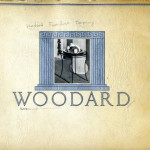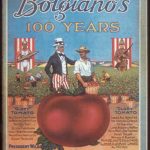 The Smithsonian Libraries will host international and New York Times bestselling author Steve Berry for a writer’s workshop at the Smithsonian’s National Museum of Natural History on October 18. The event is part of Berry’s History Matters Foundation, which raises funds for historic preservation and conservation projects around the world.
The Smithsonian Libraries will host international and New York Times bestselling author Steve Berry for a writer’s workshop at the Smithsonian’s National Museum of Natural History on October 18. The event is part of Berry’s History Matters Foundation, which raises funds for historic preservation and conservation projects around the world.
Category: homepage
 Greetings! The Smithsonian History, Art, and Culture digital collection recently added a number of titles from the special collections housed at the Dibner Library of the History of Science and Technology.
Greetings! The Smithsonian History, Art, and Culture digital collection recently added a number of titles from the special collections housed at the Dibner Library of the History of Science and Technology.

Over the past several years I’ve noticed a growing interest in wrought iron furniture- for both indoor and outdoor use, with people requesting information and images of furniture going back to the 30’s, 40’s, 50’s and 60’s. Is there is a retro revival going on? Are people restoring their old patio furniture or finding missing or replacement pieces at auctions and yard sales?

In honor of the patriotic spirit of the Fourth of July, plus the gardening season that is upon us, we take a special look at victory gardens!
Though more known for their place in the Second World War, victory gardens (or war gardens as they were initially called) were first advocated during World War I. In addition to rationing other goods, citizens were urged to do their patriotic duty and grow their own vegetables, fruits and herbs at home in order to free up resources for the military. It was hoped that with more resources, the U.S. forces would have better success on the warfront.

My name is Eleanor Peters and I’m the 2012 Peter A. Krueger Summer Intern at the Cooper-Hewitt National Design Library. I recently graduated from Middlebury College where I studied Art History and Anthropology. Growing up in New York City, I was a frequent patron of the New York Public Libraries. On any given weekend I could be found maxing out my library card with books about everything from Egyptian hieroglyphs to the ecosystem of the Great Barrier Reef. Since then I have always had a love of books and a great appreciation for libraries and book preservation. From my own experiences, whether reading for leisure or doing research for my senior thesis this past spring, libraries have been invaluable resources and centers of boundless learning. Therefore I am excited to spend 10 weeks working with my supervisor, Reference Librarian Elizabeth Broman, to learn what happens behind the scenes at the National Design Library.

Ai Weiwei’s Circle of Animals / Zodiac Heads has been a popular attraction at the Hirshhorn since its arrival in April. Surrounding the fountain in the center of the Hirshhorn, the zodiac heads have an interactive appeal as viewers pose for pictures in front of their zodiac animal. Much like Western astrological signs, the Chinese zodiac signs also have specific characteristics and traits assigned to them – both good and bad. A person’s zodiac symbol was (and is) culturally significant in many parts of Asia, where a person’s zodiac sign is sometimes seriously considered when entering a relationship.
This cultural significance is something that Ai Weiwei likes to utilize in many of his works to communicate his messages, often indicated by referencing objects that are almost synonymous with Chinese traditions and values.

